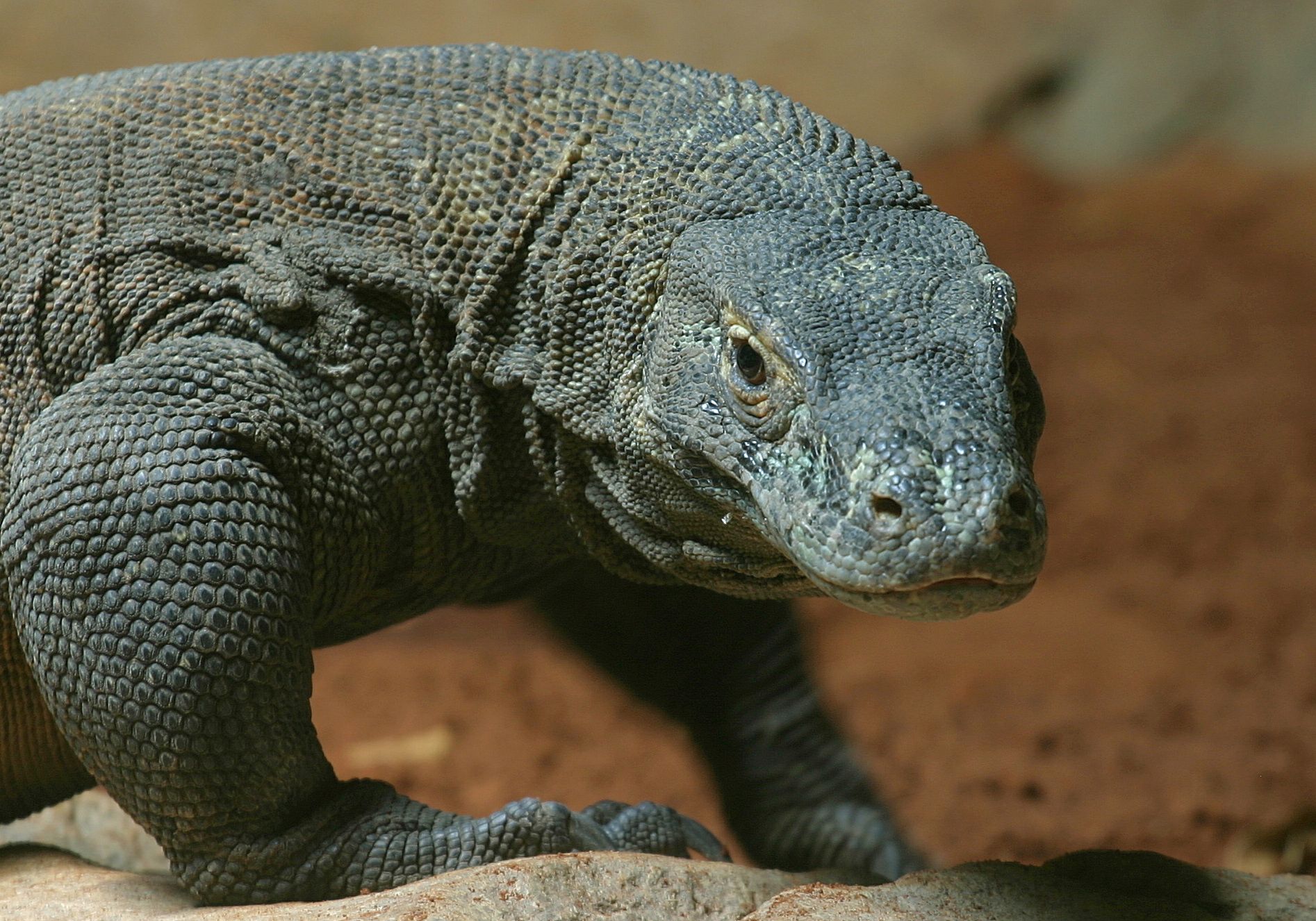
Updated | Researchers have developed a drug using Komodo dragon blood that can help heal infected wounds in mice. The drug could help combat antibiotic resistance by being used to develop a new antibiotic for already-resistant pathogens.
Scientists from the George Mason University, Manassas, Virginia, were studying the Komodo dragon for its antimicrobial properties. The saliva of these giant Indonesian lizards contains a host of bacteria. Some of these cause blood poisoning, or sepsis, which is part of the reason their bites are so deadly.
But this bacteria does not affect the dragons themselves, suggesting they have some form of biological resistance. The team were able to isolate a specific peptide from the blood of Komodo dragons that displayed antimicrobial activity—apparently protecting the lizards from harmful bacteria.
Using this peptide "as inspiration," the researchers, led by Monique van Hoek, developed a synthetic version they have dubbed DRGN-1. In their study, published in npj Biofilms and Microbiomes, the team tested how effective it was against two types of bacteria related to the development of biofilms.
Biofilms form when bacterial cells stick together then stick to a surface, such as a wound. They can cause significant problems, especially in hospital settings where they sometimes develop on biomedical devices such as heart valves and catheters. A 2008 study showed that hospital-acquired infections are the fourth leading cause of death in the U.S., with biofilms causing a significant proportion of these.
Previously, scientists have shown antimicrobial peptides to have an effect against biofilms. To test the dragon blood peptide, researchers infected the wounds of mice with bacteria so a biofilm would grow. They then treated the wounds with DRGN-1 to evaluate its potential as a drug.
Findings showed "potent antimicrobial and anti-biofilm activity" and significant wound healing in the mice given it. "The novel synthetic peptide DRGN-1 (inspired by a peptide identified from Komodo dragon) exhibits pathogen-directed and host-directed activities in promoting the clearance and healing of…biofilm infected wounds," the authors wrote.
They added that the effectiveness of DRGN-1 is not just its ability to disrupt the biofilm, but that it can also make the bacterial membranes permeable.
DRGN-1, the authors say, has potential to be developed into a new antibiotic—the current shortage of which is of major global concern. Antibiotic resistance coupled with a significant shortfall in new drugs entering the market means that at some point in the relatively near future, everyday infections could become fatal.
"The increasing prevalence of multidrug-resistant pathogens demands new antibiotics," the study says. "Due to their potent and broad antimicrobial activity, antimicrobial peptides…are a possible alternative to conventional antibiotics.
"This novel peptide [DRGN-1] may have potential as a future therapeutic for treating infected wounds."
In an email interview with Newsweek, Hoek said DRGN-1 was a "strong candidate" for further development into a therapeutic treatment. "The DRGN-1 peptide worked well in our study where we applied it in a gel to a polymicrobial infected wound," she says. "The DGRN-1 peptide showed beneficial effect in clearing the infected wound of bacteria and biofilm and also promoted wound healing, even in an uninfected wound.
"We envision this peptide being developed into a topical treatment for wounds, either alone or in combination with other antibiotics."
The next step in the research will be pre-clinical development, meaning the team will carry out further testing—such as checking its stability and safety. "In our study, this peptide was found to be effective on mice and did not cause any obvious safety issues, so we are excited to take this forward," says Hoek. "We envision going toward a veterinary wound-care market and in the long run, the human-wound care market. We are also continuing to work on additional promising peptides that we have discovered; however, these peptides are not as far along in development."
Hoek also says the increasing problem of antibiotic resistance means novel approaches to the control of infections are becoming more important. "We need to expand our approach to discovering new antibiotics," she says. "Innate immunity in animals such as the Komodo dragon provide a diverse library of molecules, such as the peptide that inspired DRGN-1, that have evolved to defend the organism from infection, and may provide the basis for the development of new and effective antibiotics."
This article has been updated with comments from Monique van Hoek.
Uncommon Knowledge
Newsweek is committed to challenging conventional wisdom and finding connections in the search for common ground.
Newsweek is committed to challenging conventional wisdom and finding connections in the search for common ground.
About the writer
Hannah Osborne is Nesweek's Science Editor, based in London, UK. Hannah joined Newsweek in 2017 from IBTimes UK. She is ... Read more
To read how Newsweek uses AI as a newsroom tool, Click here.








